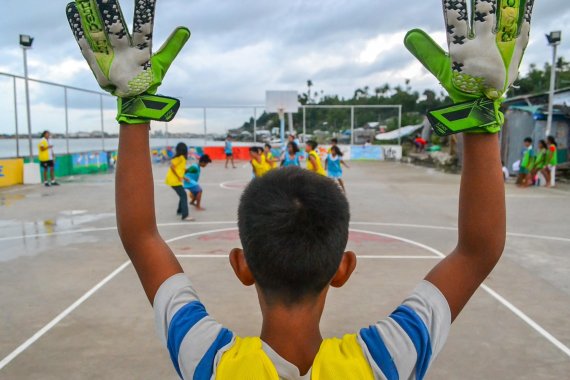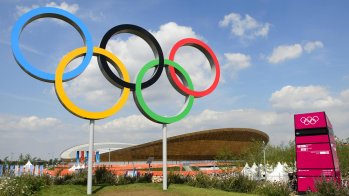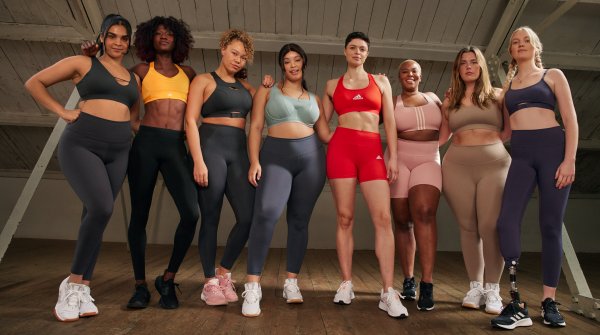
The Covid-19 pandemic has had the world in its grip for over a year. So far, over 2.8 million people have died, social injustices have worsened, entire sectors of the economy are lying idle, and health and social systems are on the brink of breaking point or beyond. Thanks to vaccines and testing, an end to the pandemic is within reach. But Corona will leave a mark from which the world will have to recover. A lengthy process in which sport will have an important role to play, as the UN highlights in its report "Recovering Better: Sport for Development and Peace".
Sport has often helped to create spaces for dialogue, advance gender equality, promote social inclusion and tackle discrimination against vulnerable groups," said UN Secretary-General Antonio Guterres. "It has played this role at all levels of society, from the smallest communities to the global village. It has provided avenues for improving individual health and community well-being. We continue to count on sport to provide this space."
ISPO.com presents ten ways in which sport can play a role in the global recovery from Corona's aftermath and in achieving the UN Sustainable Development Goals.
The most direct path to recovery through exercise starts with each individual. As effective as lockdowns are in breaking chains of infection, exercise restriction can also have short- and long-term physical and psychological consequences. To regenerate and relieve stress after inactivity, the UN report sees sport and regular exercise as a great asset and recommends that governments worldwide work closely with the sport community to provide safe sporting opportunities.
And this is also for the benefit of children, as the report points out: "Sports-based programmes can also be vehicles to develop and bolster the social and emotional skills in children and young people, needed to address the vulnerabilities that are the direct consequences of stress caused by the health impacts of COVID-19, the policies associated with COVID-19 prevention (including physical distancing), and/or the socioeconomic impacts of the pandemic."
The UN's Sustainable Development Goals (SDGs) include global access to education. In times of home schooling, however, Covid-19 has exacerbated inequalities: those who have no or no fast internet access are suddenly left out of the class structure, which can have consequences for the affected children far beyond the pandemic. Outsider roles can thus emerge or become manifest. These are dynamics that school sports and sports clubs can counteract by teaching values such as fairness, team spirit, equality and respect.
In general, according to the UN report, strengthening school sport and clubs is worthwhile as an effective way of integrating and including systematically disadvantaged children and young people such as refugees or children with disabilities.
With rising rates of domestic violence at curfews worldwide and growing economic dependencies due to unequal pay, Corona has particularly severe consequences for many women. According to the UN report, the sports community must also take action to prevent discrimination against women in the wake of the pandemic: In view of the loss of revenue in professional sport, it is important here not to gamble away the good developments before Corona, for example with adjustments to prize money to men's levels and increasingly lucrative advertising deals for women in sport too.
"Sponsors, media, professional and elite sports organizations should continue to increase their efforts to expand opportunities for women as athletes, professionals and leaders throughout the sports ecosystem," the UN report states.
Sport creates millions and millions of jobs around the world, from professional sport to the sporting goods industry, retail, tourism, catering and sports media. Cancellations or postponements of sporting events such as the Summer Olympics, the European Football Championships or the European Athletics Championships 2020 have also affected jobs. According to the UN report, societies benefit all the more from being able to hold sporting events and major events again under secure conditions.
However, achieving the UN Sustainable Development Goals also means ensuring that the resulting jobs are fair: For example, are professional athletes adequately insured and protected from discrimination? What role do human rights play in the awarding of major events? What are the working conditions in production facilities? This is where the UN sees actors in the sports community, such as federations, as having a duty.
72 percent of respondents to the Nielsen study "Promoting Racial Equality in Sport" believe that athletes have a strong influence on public opinion. It's a role that sports should fulfill all the more vociferously given the pandemic's reinforcement of economic and social inequalities - with more than 71 million people worldwide slipping into extreme poverty by 2020.
For example, the UN report recommends that sports stars speak out even more clearly in support of the Sustainable Development Goals and that UN member states use the prominence of athletes to promote physical activity, health and education.
Publicly accessible sports facilities are in demand as never before in the pandemic. However, the greater demand also more clearly revealed weaknesses in some local sports services: Are they safe for girls and women, or do they fall victim to harassment, discrimination or systematic exclusion from social participation? And how accessible are the offers for people with disabilities?
According to a UN study, first cities have already learned their lessons and developed new strategies and plans to diversify leisure facilities and public sports facilities. With lessons learned from the pandemic, future generations could benefit from more accessible and safer sports and recreational opportunities.
These Venues Combine Sport and Biodiversity in Cities
Up to now, major sporting events such as the Olympic Games or the Football World Cup have cost host countries billions. Sports stadiums and arenas had to be built from scratch and are among the biggest consumers of energy, building materials, and water.
Even before Corona, Western countries had a hard time convincing their own populations to bid for the Olympics. With state budgets under strain and global supply chains affected by the pandemic, calls for more sustainable events and sports venues are growing louder.
The sporting event of the future relies on responsible use of resources rather than gigantism. One example of this is the European Championships Munich in 2022, which will build on existing infrastructure.
The Covid 19 pandemic may have pushed the climate crisis out of many people's minds. But never before has the need for decisive action to counteract global warming and its catastrophic consequences been more important than today. Here the UN report also takes sport to task. After all, it is often the athletes who first become aware of the consequences of climate change in their environment.
This is also confirmed by ISPO Cup winner and trail runner Kilian Jornet, who is campaigning for the preservation of the mountain world with his Kilian Jornet Foundation and is thus preaching to the UN. The latter encourages the global sports community to draw more global attention to the issue by establishing environmental standards and identifying and reducing CO2 emissions.
While the Covid 19 pandemic brought public life to a halt in many places, wars and conflicts raged on. Especially in already eroding states, the pandemic exacerbated violence and exploitation, according to the UN report. In addition to keeping the Olympic Truce during the 2021 Tokyo Games, which was approved by the UN General Assembly, sports are otherwise bridge-builders between conflicting parties here.
After conflicts, it is often sports programmes that contribute to peacebuilding and reconciliation. With its canon of values, sport provides support, especially for younger people, and can thus prevent a slide into extremism and violence.
Clearly, sport cannot and must not carry the UN Sustainable Development Goals on its shoulders alone. But from local clubs to international initiatives by associations, sport offers countless approaches to coming together, forming networks and thus building new partnerships and synergies. Sport brings people together. A quality that, after loss, abandonment and social isolation during the pandemic, will be in demand as never before.
- ISPO awards
- Mountain sports
- Bike
- Design
- Retail
- Fitness
- Health
- ISPO Job Market
- ISPO Munich
- ISPO Shanghai
- Running
- Brands
- Sustainability
- Olympia
- OutDoor
- Promotion
- Sports Business
- ISPO Textrends
- Triathlon
- Water sports
- Winter sports
- eSports
- SportsTech
- OutDoor by ISPO
- Heroes
- Transformation
- Sport Fashion
- Urban Culture
- Challenges of a CEO
- Trade fairs
- Sports
- Find the Balance
- Product reviews
- Newsletter Exclusive Area
- Magazine























